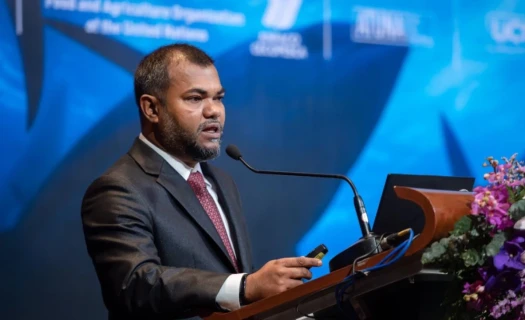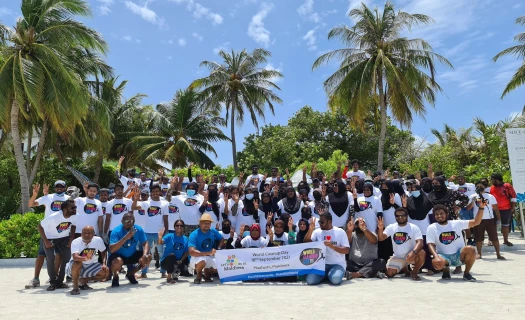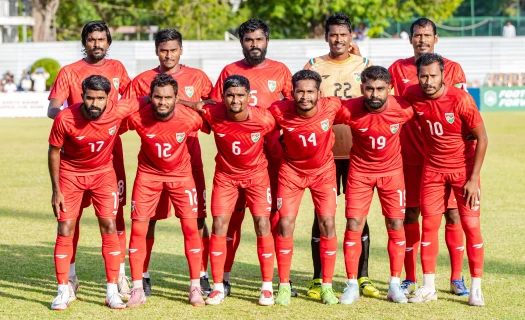Mon, 08 Sep 2025
|DHIVEHI
World Health Day 2025: Maldives reflects on maternal and newborn health progress
07 Apr 2025
|

Photo: UNICEF
As the world marks World Health Day 2025 under the theme “Healthy Beginnings, Hopeful Futures,” the Maldives takes stock of the remarkable progress it has made in maternal and newborn health while continuing to confront emerging health challenges.
The Maldives has transformed dramatically over the past few decades, evolving from one of the world’s 20 poorest nations in the 1980s into a high-middle income country. This transformation has been mirrored in its health outcomes, particularly in reproductive and maternal health.
According to the World Bank, the Maldives achieved one of the most significant reductions in maternal mortality globally. Between 1990 and 2015, the maternal mortality ratio declined by 90 per cent, falling from 677 to 68 deaths per 100,000 live births. A 2009 study also noted that access to maternal health services was fairly equitable across urban and rural areas, which is a notable achievement for a geographically dispersed island nation.
UNICEF reports that nearly all mothers in the Maldives now give birth in health facilities, with deliveries attended by skilled health providers. Antenatal care is nearly universal, with 99 per cent of pregnant women receiving care and 95 per cent doing so in the first trimester. Most services are provided by obstetricians and gynaecologists, and 99 per cent of women receive key health checks such as blood pressure, urine, and blood tests during visits.
Despite these achievements, the Maldives is experiencing a demographic shift. The total fertility rate has declined to 1.7 births per woman as of the 2022 census, which is below the replacement level of 2.1. This trend reflects broader changes in reproductive behaviour, including delayed childbirth and rising education and employment opportunities for women. The mean age at first birth has also increased, rising from 20 to 21 in the atolls and from 22 to 23 in Malé since 2014.
At the same time, new health risks are emerging. Rising levels of obesity have contributed to more cases of hypertension and diabetes during pregnancy, which place both mothers and newborns at risk. Strengthening prevention and public health efforts will be essential to reducing these complications.
The Government has expanded reproductive health services in collaboration with international agencies and NGOs such as the United Nations. Fertility treatments, including IVF and IUI, are now covered under the Aasandha scheme. Minimally invasive gynaecologic surgeries have been introduced in state hospitals, and a specialised Endometriosis and Pelvic Clinic has opened at IGMH. So far, 105 people have accessed fertility care, and a dedicated MVR 15 million fund has been established to ensure continuity of these services.
As the Maldives joins the global call for stronger maternal and newborn care, it does so with a strong record of progress and a continued commitment to equitable, high-quality, and preventative health services.


Popular News







